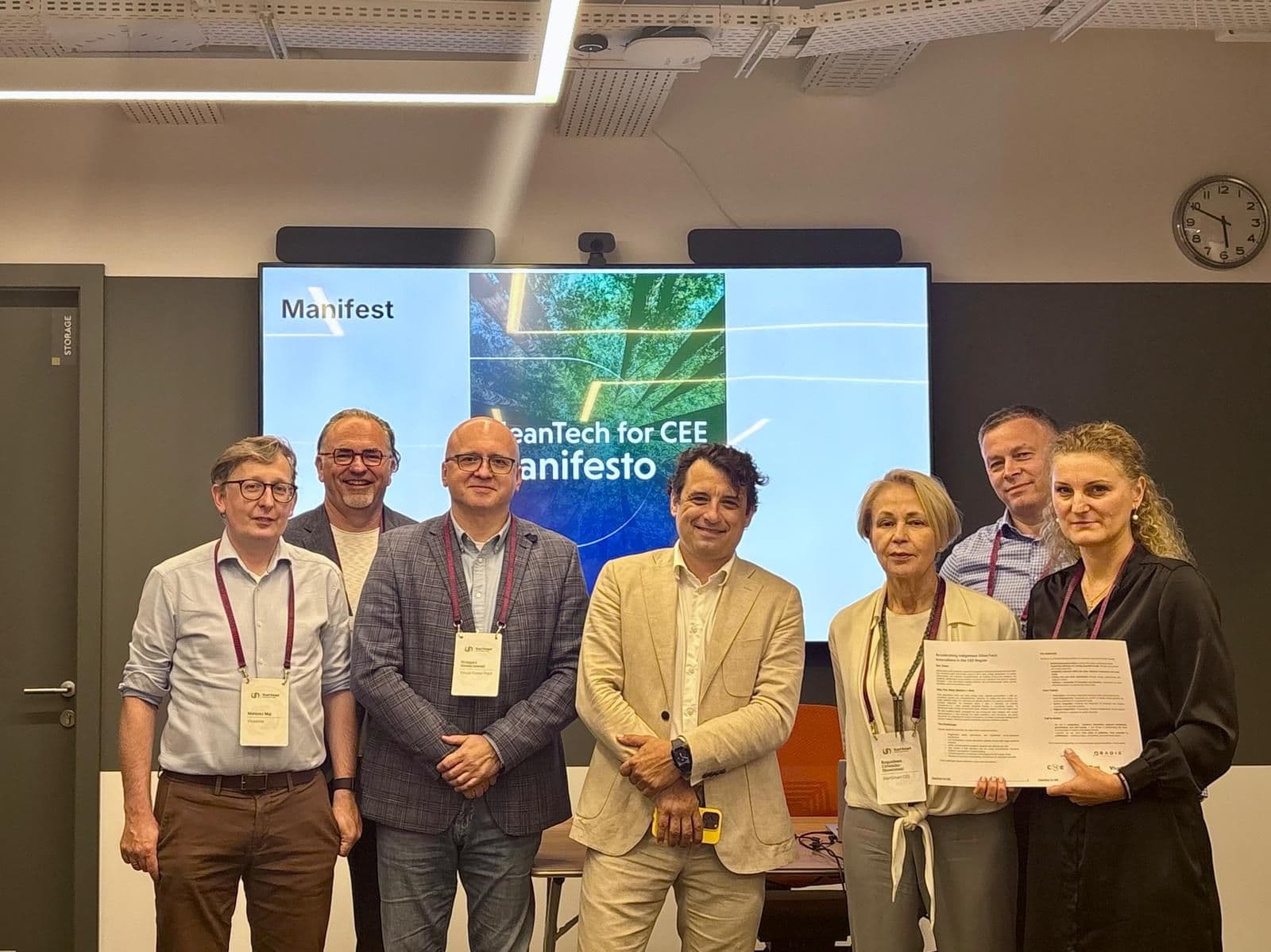Cleantech for CEE Coalition Launches

The first five organizations have announced the formation of the founding coalition Cleantech for CEE, aimed at harnessing the region's potential to create its own scalable clean technology solutions. The initiative, supported by the international organization Clean Air Fund, aims to address structural barriers hindering the development of the local green technology ecosystem.
Time for a Strategy Change
The Cleantech for CEE coalition officially launched in Warsaw. The inaugural meeting brought together representatives from investment funds, technology companies, and organizations supporting sustainable development, all convinced that it's time for our region to lead Europe's energy transformation – from within.
Facing geopolitical shifts and rising energy costs, Central and Eastern European governments prioritize security and competitiveness. The problem is that air quality and clean energy take a back seat unless their outcomes are directly linked to positive economic and strategic goals. The cleantech sector is seen as desirable but remains unsupported by clear public strategy, dedicated sectoral financing, or coordinated public policies.
"The CEE region has all the elements needed to create a thriving clean technology ecosystem – we have world-class engineers, a strong industrial base, and growing environmental awareness. What we lack are mechanisms to connect these elements into a cohesive whole. Our coalition is the answer to this gap," says Magdalena Jabłońska, co-chair of Cleantech for CEE.
Manufacturers or Innovators? Time for Our Own Technologies
The facts speak for themselves: the CEE region has become Europe's factory in the cleantech sector. We produce and export batteries, wind turbines, heat pumps, and dozens of other products. But upon closer inspection, it turns out we're masters at executing others' designs, not creating our own. The coalition aims to change this – transforming the region from a place where technologies are merely produced to one where they are invented, tested, manufactured, and scaled.
"For over a decade, we've been developing proprietary energy optimization technologies that help consumers and energy companies generate savings through intelligent energy management. Awareness among decision-makers is growing, as is the number of optimally configured manufacturing plants, office buildings, logistics centers, and sports facilities. Our experience proves that Poland can be not just a factory, but also a place for creating breakthrough technological innovations," says Grzegorz Nowaczewski, CEO of VPPlant.
How to Overcome Structural Barriers?
Despite the CEE region's significant potential, clean technology development faces serious systemic barriers. Fragmented public management means innovative projects get lost in a maze of procedures and lack of coordination between ministries. Early-stage cleantech startups struggle to secure funding – too small for VC funds, too risky for banks, too complex for public grants. Added to this is the gap between academia and business – Polish universities produce research that rarely transforms into real products or spin-offs. The result? Foreign corporations locate factories here but don't include local innovators in their supply chains.
"We see this paradox daily – we have excellent teams creating breakthrough solutions, but they lack support at the crucial stage between grant and first funding round. That's why we joined forces. Our coalition isn't just about capital, but primarily about experience in building bridges between different worlds – science, business, and administration," says Paweł Bochniarz, Managing Partner at Radix Ventures.
The founding coalition currently includes Radix Ventures, C4E, VivaDrive, and VPPlant. Additional entities from Poland and the CEE region will be invited gradually as the action strategy develops. Together, they propose an approach based on four pillars. First, new financing models combining public funds with private investments. Second, using public procurement as a springboard for local innovations. Third, actively integrating cleantech startups into the supply chains of corporations producing technologies in Poland and CEE. Fourth, building connections between cities and regions through energy cooperatives and technology clusters.
First Steps and Future Plans
The goal is clear – remove barriers blocking clean technology ecosystem development. The public and private sectors must truly collaborate to improve air quality, accelerate energy transformation, and increase our industry's competitiveness. We must focus on solutions arising from local advantages and cooperation throughout the region. Only such innovations have a chance to be simultaneously profitable, equitable, and environmentally friendly.
"The transformation we're initiating requires engagement from all economic sectors. We invite collaboration from enterprises seeking innovative solutions, investors recognizing clean technology potential, and innovators and scientists ready to commercialize their discoveries. We believe that together we can make Central and Eastern Europe a transformation model for other regions of the world," concludes Magdalena Jabłońska.